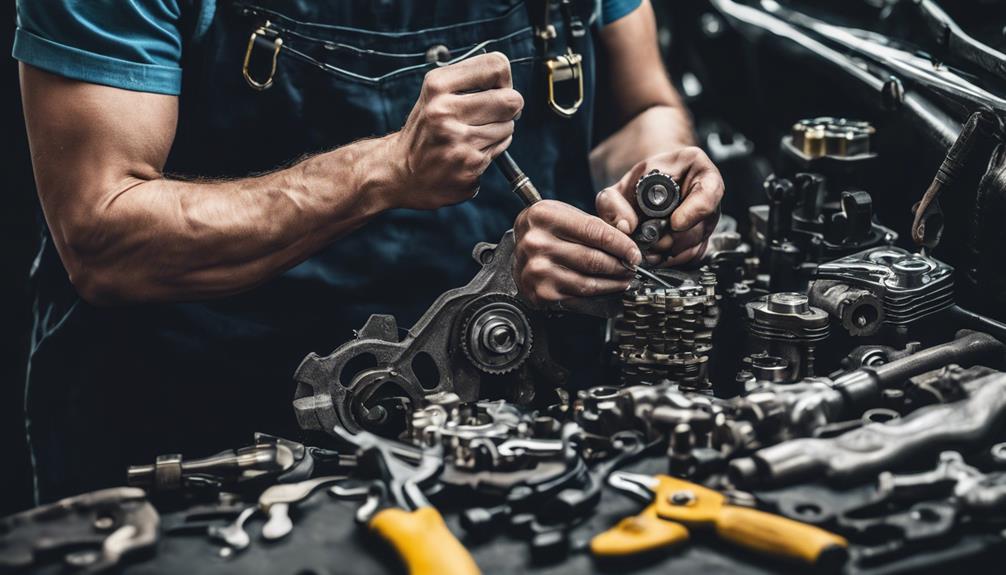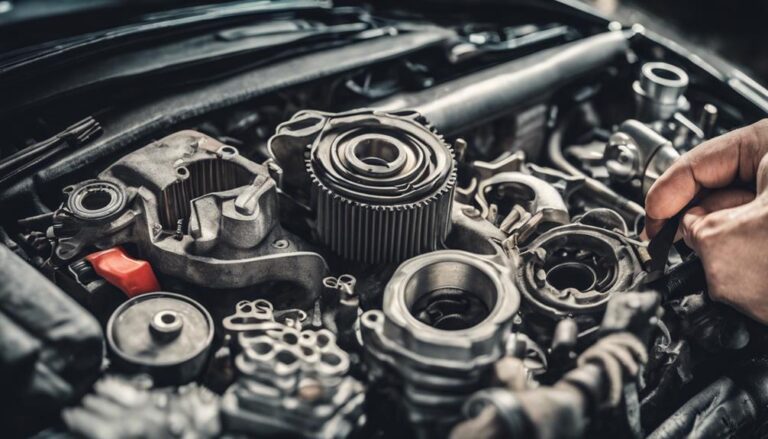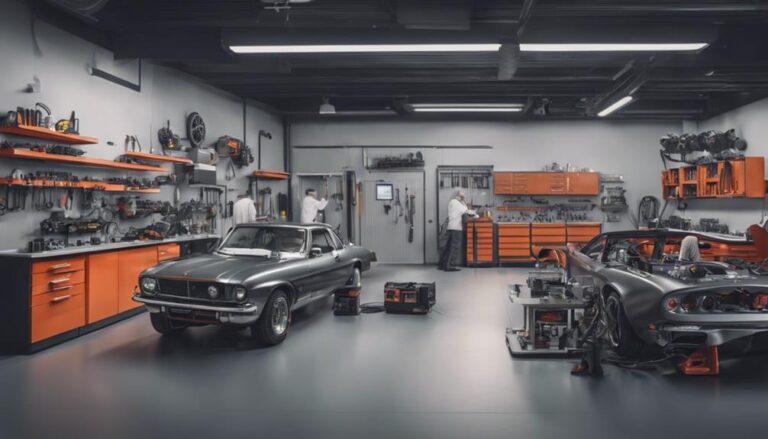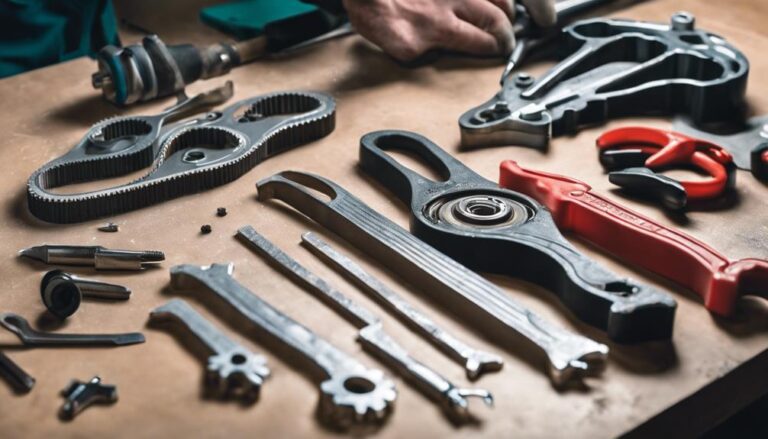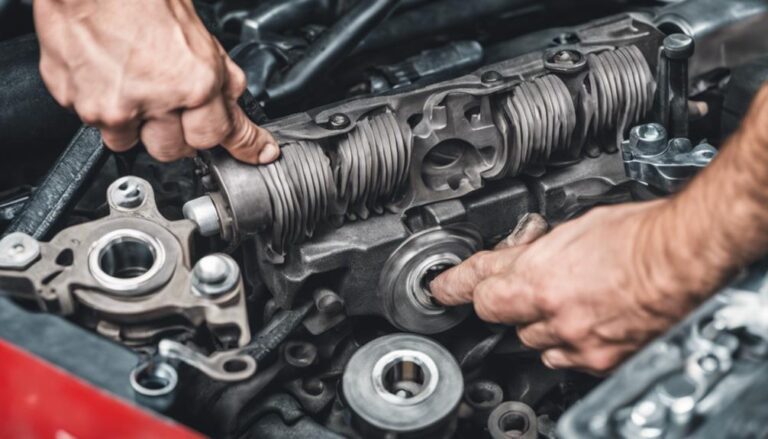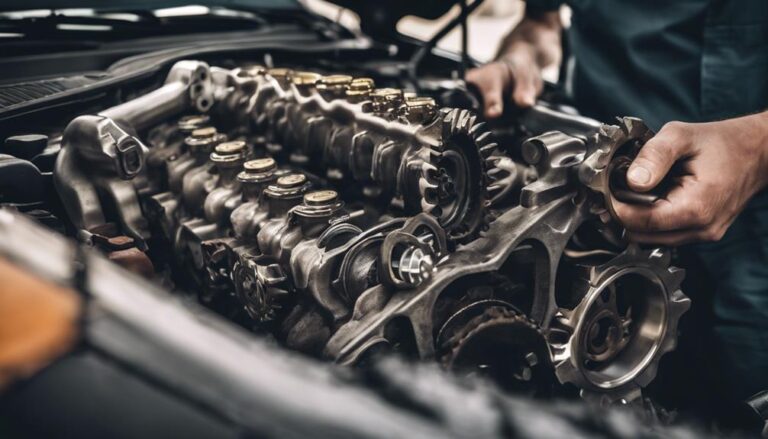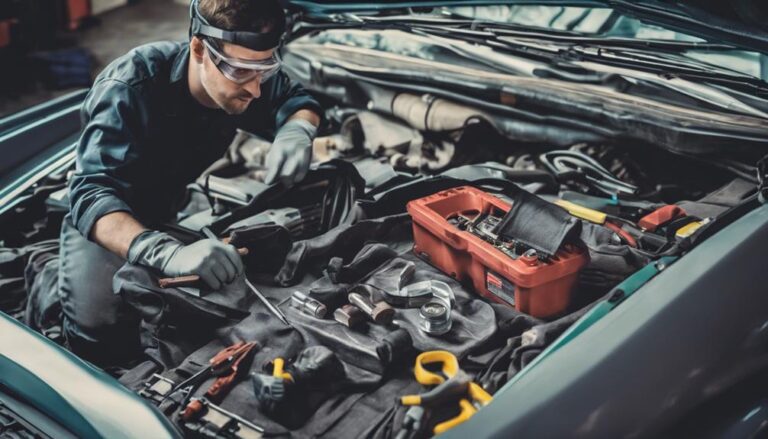Why Is Regular Timing Chain Maintenance Essential?
Maintaining your timing chain may seem like a minor task, but neglecting it could lead to catastrophic consequences for your vehicle's engine. Imagine the heart of your car's operation suddenly failing due to a simple oversight.
The timing chain plays a crucial role in synchronizing the engine's components, and ensuring its proper upkeep can save you from a world of trouble. Let's explore why regular timing chain maintenance is a key factor in keeping your engine running smoothly and efficiently.
Key Takeaways
- Regular timing chain maintenance ensures optimal engine performance and longevity.
- Timely inspections prevent costly repairs and unexpected breakdowns.
- Proper maintenance extends engine lifespan and enhances reliability.
- Meticulous care of timing chain components improves fuel efficiency and overall engine health.
Importance of Timely Chain Inspections
Regularly inspecting the timing chain is a critical maintenance task that ensures optimal engine performance and longevity. Early detection of timing chain issues through timely inspections can provide significant maintenance benefits. By catching problems early on, you can prevent more extensive damage that may lead to costly repairs and unexpected breakdowns.
When potential timing chain issues are identified promptly, you have the opportunity to address them before they escalate, thus avoiding disruptions to your vehicle's performance and ensuring smooth operation. Ignoring these inspections can result in reduced engine power, compromised acceleration, and overall diminished performance.
Moreover, conducting regular timing chain inspections not only enhances the reliability of your engine but also contributes to improved fuel efficiency and an extended lifespan for your vehicle. Following the manufacturer's recommended replacement intervals is crucial for maintaining optimal performance and avoiding detrimental effects on your engine's functionality. By prioritizing these inspections, you take proactive steps towards preserving your engine's health and maximizing its longevity.
Preventing Timing Chain Failures
To prevent potential timing chain failures, meticulous maintenance and timely inspections are essential to ensure uninterrupted engine operation and longevity. Preventive measures play a crucial role in avoiding costly repairs and maintaining optimal engine performance.
Common symptoms of a failing timing chain include engine misfires, rough idling, unusual noises coming from the engine, and decreased fuel efficiency. By staying vigilant and addressing these warning signs promptly, you can prevent more severe issues like engine damage or failure.
Regularly checking the timing chain tension, guides, and sprockets, as well as following recommended maintenance intervals, can significantly reduce the risk of timing chain failures. Timely replacements of worn-out components can extend the life of the timing chain and improve overall vehicle reliability.
Extending Engine Longevity Through Maintenance
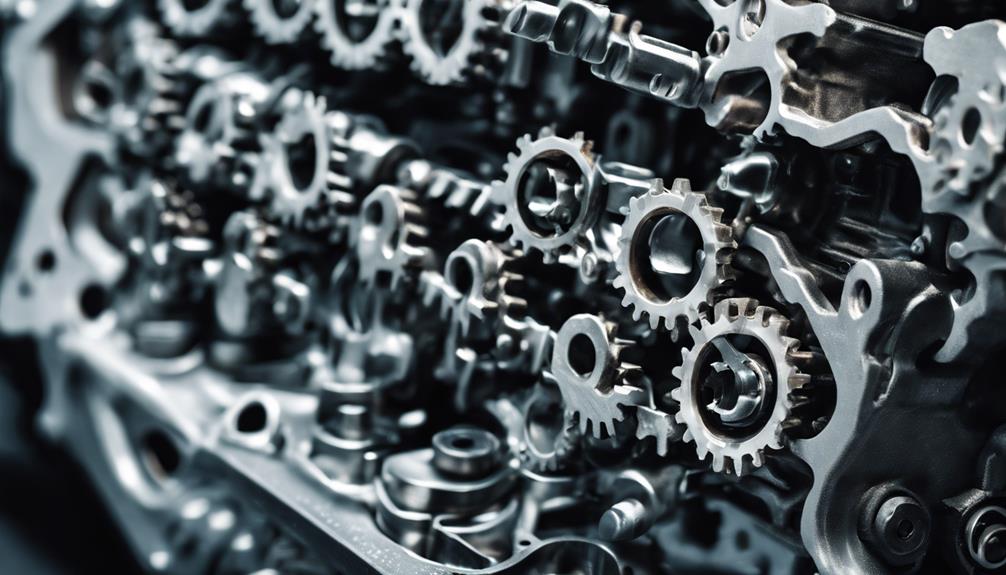
Extending the longevity of your engine through meticulous maintenance practices is essential for ensuring optimal performance and avoiding costly repairs. By increasing durability and enhancing efficiency, you can significantly improve the overall lifespan of your engine. Consistent care of components like the timing chain plays a vital role in maintaining engine power, acceleration, and reliability over time. Following manufacturer-recommended replacement intervals is crucial as it can prevent sudden breakdowns, expensive repairs, and potential towing expenses. Moreover, proper maintenance not only prevents engine damage by ensuring the synchronization of valves and pistons but also leads to improved fuel efficiency and optimal engine operation. Embracing these practices will not only prolong the life of your engine but will also contribute to a smoother and more efficient driving experience.
| Benefits of Engine Longevity Maintenance | |
|---|---|
| 1. Increased Durability | 3. Prevention of Sudden Breakdowns and Costly Repairs |
| 2. Enhanced Efficiency | 4. Improved Fuel Efficiency and Optimal Engine Operation |
| 5. Maintenance of Power, Acceleration, and Reliability Over Time |
Cost-Effective Maintenance Practices
For cost-effective maintenance practices that ensure the longevity and performance of your engine, meticulous attention to timing chain care is paramount. Budget-friendly care not only saves you money in the long run but also enhances the efficiency of your engine. Regular inspections and timely replacements of timing chain components are crucial for cost savings and avoiding unexpected breakdowns. By investing in efficient upkeep, you can prevent costly engine repairs and maintain optimal performance.
Proper maintenance benefits extend beyond just the timing chain itself. They contribute to overall engine health, preventing power loss, misfires, and other issues associated with timing chain malfunctions. Following manufacturer recommendations for maintenance intervals is key to maximizing the lifespan of your timing chain and avoiding unnecessary expenses. By implementing these cost-effective maintenance practices, you not only save money but also ensure that your engine operates smoothly and reliably.
Ensuring Optimal Engine Performance
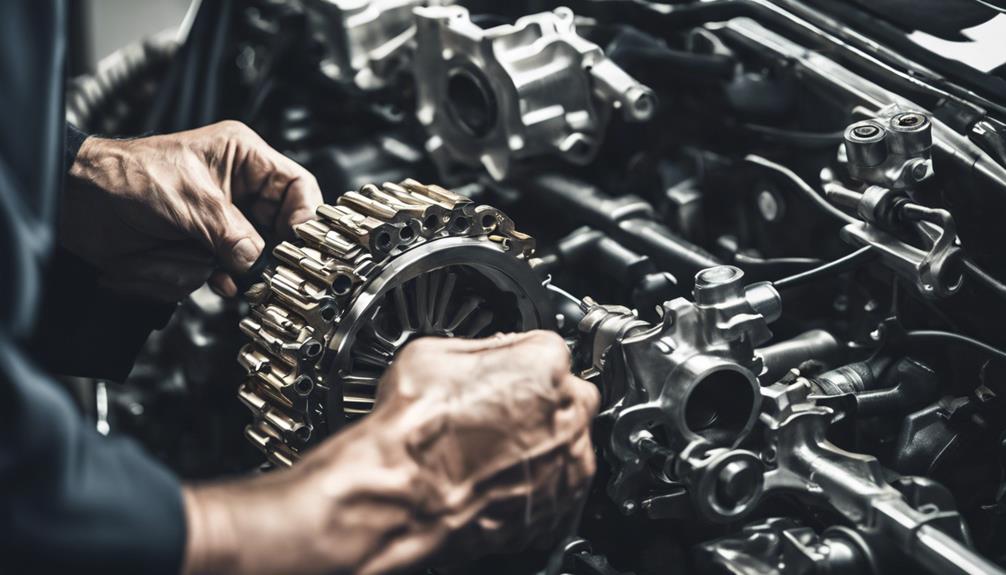
Ensuring optimal engine performance hinges on meticulous timing chain maintenance. This practice directly impacts the synchronization of vital engine components for peak operation. By adhering to regular maintenance schedules, you can improve efficiency and maximize durability of your engine.
Properly synchronized valves and pistons result in smoother engine operation, enhancing overall performance. Timely maintenance not only prevents sudden breakdowns and costly repairs but also increases the longevity of your engine. Following manufacturer guidelines for replacing timing chain components is crucial to avoid reduced power, acceleration, and potential engine damage.
Consistent care of the timing chain leads to improved fuel efficiency, ensuring your engine operates at its best. Preserving engine reliability through timing chain maintenance helps prevent issues like rough idling or engine misfires, ultimately contributing to a more efficient and durable engine performance.
Frequently Asked Questions
Do Timing Chains Need Maintenance?
Yes, timing chains need maintenance. Chain tension and lubrication are critical for optimal function. Wear and stretching can occur over time, affecting performance. Regular checks can prevent costly repairs. Addressing issues promptly ensures your engine's longevity.
What Is the Importance of Timing Chain?
Boost your engine's power and reliability by prioritizing timing chain care. Enhance performance and prolong the life of your vehicle with timely maintenance. Keep your ride running smoothly and efficiently by ensuring proper timing chain function.
How Often Does a Timing Chain Need to Be Replaced?
Timing chains typically require replacement around 80,000 to 120,000 miles. Signs of wear include rattling noise and engine misfires. Timely replacement prevents costly repairs and engine failure, ensuring optimal performance and reliability.
Does Frequent Oil Changes Help Timing Chain?
Frequent oil changes are crucial for your timing chain's health. Fresh oil provides proper lubrication, preventing wear and extending engine longevity. Regular changes help maintain optimal performance, preventing premature stretching and costly repairs.
Conclusion
You must prioritize regular timing chain maintenance to ensure optimal engine performance and prevent costly repairs.
For example, a vehicle owner neglected timing chain maintenance, leading to a worn chain that eventually skipped a tooth, causing severe engine damage.
By staying proactive with inspections and maintenance, you can avoid such catastrophic failures and keep your engine running smoothly for years to come.
Don't overlook the importance of timing chain upkeep to safeguard your vehicle's longevity.

